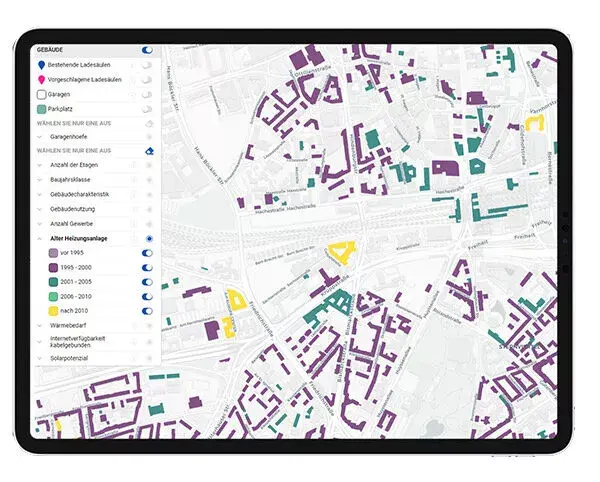envelio and digikoo
The Heat Concept service from digikoo provides key insights for the urban sector, utilities and energy service providers into the ways to transform the heat supply system. Combined with digikoo’s DigiPAD, this allows you to perform status analysis in order to evaluate the status quo as well as analyze the potentials for renewable energies or utilization of local waste heat. Based on this, favorable areas as well as consumption and supply scenarios are derived, taking into account the specific local parameters, which serves as a basis for creation of a digital twin of the heat supply infrastucture.
These derived scenarios can easily be made available in the Grid Study application of the Intelligent Grid Platform (IGP) from envelio. The IGP allows you then to carry out detailed stress tests and scenario analyses to make strategic grid planning more efficient. This way, you can evaluate the impact of the scenarios provided by digikoo on your power distribution grids. The results can be used to identify potential grid bottlenecks and optimize the strategic grid planning accordingly.
About digikoo:
digikoo Heat Concept (in German)
digikoo GmbH is a wholly-owned subsidiary of Westenergie AG, an energy service provider and infrastructure provider based in Essen. By combining different data layers, digikoo provides reliable information about inventory and forecasts on electricity, transportation, and heat. With its Heat Concept, digikoo supports municipalities, energy suppliers and infrastructure operators, municipal utilities, and service providers in planning and efficiently implementing their municipal heat supply strategy, particularly with regard to overall economic viability, cost implications for households, and renovation needs.



